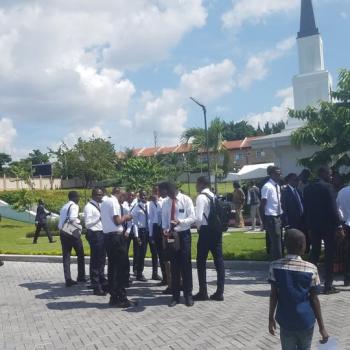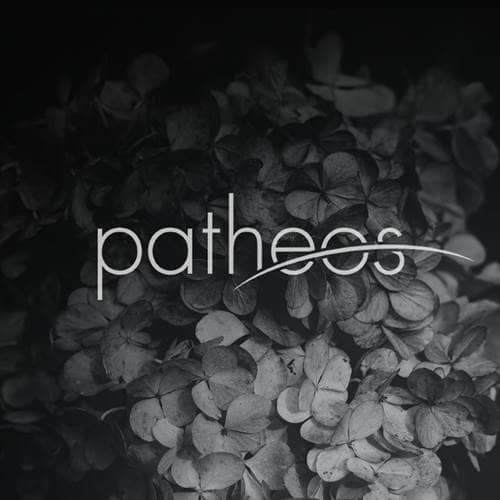Lectionary Reflections: Year A
Fourth Sunday of Easter
May 15, 2011
Psalm 23
Well, what on earth, or elsewhere for that matter, can anyone say that might be new about the most famous poem ever written? I am tempted as I begin to have you, the reader, simply pull out your Bible and read the psalm out loud several times and not bother to read whatever I may have to say, simple Bible scholar that I am. But, I must say, that I am even more tempted to try my hand at some commentary on the poem, knowing that whatever foolishness I may utter cannot possibly do the thing in! So, here goes. Those who prefer to read it only may do so now. But for the rest of you, read on, though duly warned.
First, a word about the superscription of the psalm: "A Psalm of David" reads the NRSV. The preposition in the short phrase can indeed indicate possession; David may in several possible senses own this psalm. He may have written it, as generations of readers have assumed. On the other hand, it may have been written "to" him (another possible translation) as the patron saint of hymnody in Israel. After all, the second king of Israel was long remembered as a fine musician whose gifts of playing on his harp was the only thing that could soothe the rages of his kingly predecessor, Saul. And, if one read only the books of the Chronicles, and their story of Israel's history, one would gain the clear impression that all David ever did was compose and sing songs and direct choirs in praise of God. No murders, no adultery, no lying did David ever do, according to the Chronicler! Too bad for him that the Bible's compilers left all of that mess in among the unforgettable tales of 1 and 2 Samuel, thus relegating the dry prose of the Chronicler to the Bible's third tier. Whether David wrote the psalm or merely was the dedicatee is less important than the undying metaphors the poet has bequeathed to us all.
Second, in a modern world where sheep are for most fluffy creatures on far away hillsides or more likely lamb chops wrapped in cellophane, when the poet writes "YHWH is my shepherd," it is not easy for us to get the full weight of what may be implied. I lived in Cheshire, England for a year some time ago, one of the world's places where there still may be more sheep than people. During my near daily observation of the many sheep in the area, I learned one central thing: they are as dumb as a box of rocks! They follow wherever the one in front of them goes, and since they almost never lift their wooly heads up to see where that might actually be, being focused only on the next blade of grass, it is not uncommon for the little fur balls to end up on hillside ledges, whence they must be lifted by an exasperated shepherd, or, worse, in a swollen stream, from where they must be dragged, water-logged and bleating piteously. Hence, to be called "sheep" is not the nicest thing one may be called! It does, however, make a valuable point, once the sheep's possession of a tiny brain is known; we "sheep" desperately need a shepherd, since we are in fact forever finding ourselves in the 21st-century equivalent of tiny ledges and rushing streams, bleating loudly to be saved from our stupidity.
Third, I have always been intrigued by verse 5: "You prepare a table before me in the presence of my enemies." Just what does your mind conjure up when you read that one? For me, the real question here is: just what are the enemies doing while YHWH spreads this picnic "before me"? Are the enemies standing at a distance, their tongues hanging out, their stomachs distended, while I gorge myself on God's bounty? Or are the enemies invited to share the picnic with me? For me, the answer to that question is crucial. Since this psalm is quite regularly read and recited by all at funerals, is it saying that after I have survived the "valley of the shadow of death" I need now to share God's gifts with all, even those I consider my foes? And this "I" is not the one who has died, but those of us who are still living. If that is so, the psalm becomes far more than a pleasant word of thanksgiving and rest, but equally a call to a new and more inclusive community.
Fourth, the last verse is a genuine difficulty, given the psalm's ubiquitous use at funerals and memorials. The NRSV reads, quite rightly, "I shall dwell in the house of YHWH my whole life long." The footnote in that translation offers an alternative "for length of days," but you will notice what is not offered, namely the familiar King James "forever." Well, that throws a definite crimp in the funeral's trusting claim that the deceased will "dwell in God's house forever," since the Hebrew text plainly does not say that! Announcing that the one who has died will dwell in God's house as long as he/she lives does raise a serious question!
The fact is the NRSV is right: the Hebrew phrase does indeed mean "as long as one lives." In this case, the KJV is simply wrong. I was the editor of the psalms and canticles material in the back of the 1989 United Methodist Hymnal, and when I pointed this translation issue out to the main committee responsible for the hymnal, I was told by one member that if I tried to put that translation into the psalms portion of the hymnal, he would vote against the whole thing! The emotions were so high that we needed to find a compromise. We did by offering my reading in the psalms section, accompanied by a footnote, directing the reader to the alternate KJV translation to be found earlier in the book. Still, I have little doubt that KJV continues to trump NRSV when this psalm is used, especially at funerals.
There is, as always, something different to be seen, even in this most familiar of psalms. So it is with great literature; its final depths can never be plumbed. But what cannot finally be denied is that YHWH is our shepherd, and we are YHWH's most foolish sheep. And that is just okay.
5/8/2011 4:00:00 AM





